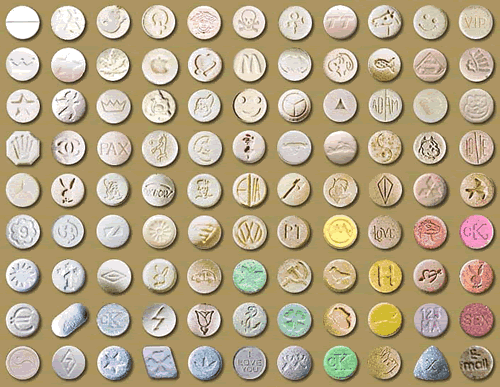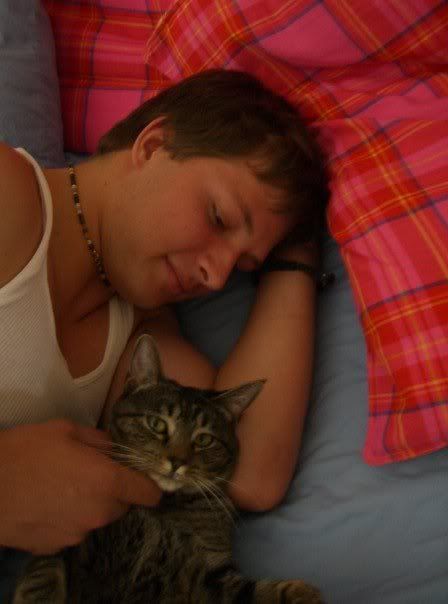As I lay in the small bed listening to my Ipod, I thought back over the past couple of years and what I had done to end up here. ‘Here’ was a small, yet comfortable room in the Cirque Lodge rehab facility outside of
 I couldn’t quite pick out an exact time when my recreational drug use turned into an addiction, but I guess no one ever set out to end up in rehab. The counselors told me I ended up here for a reason, that I had a ‘disease’ known as addiction, but I was skeptical. How could a disease make me throw 500 bucks a week up my nose, and how could it make me unable to stop using once I’d started? It seemed to me that I had some sort of weakness that no one else seemed to have. Why could everyone else stop after having a few drinks, or could get through a day without using some kind of drug? Over the few months I spent there, though, I learned a lot about the disease concept, and my general outlook on life turned from suicidal to hopeful.
I couldn’t quite pick out an exact time when my recreational drug use turned into an addiction, but I guess no one ever set out to end up in rehab. The counselors told me I ended up here for a reason, that I had a ‘disease’ known as addiction, but I was skeptical. How could a disease make me throw 500 bucks a week up my nose, and how could it make me unable to stop using once I’d started? It seemed to me that I had some sort of weakness that no one else seemed to have. Why could everyone else stop after having a few drinks, or could get through a day without using some kind of drug? Over the few months I spent there, though, I learned a lot about the disease concept, and my general outlook on life turned from suicidal to hopeful.
Addiction doesn’t occur because of a lack of willpower. In many instances this misconception can keep people from seeking help. They believe that they should be able to do this on their own, and a lot of the time that simply isn’t the case. A reason for a very large percentage of those that have suffered from addiction is an imbalance of brain chemicals. Each different drug works on certain kinds of chemicals in your brain. If a person has a low level of a certain type of chemical, and finds a drug that increases that chemical wouldn’t that make him feel normal? In many situations that is the case. Listening to hundreds of addicts talk about how they didn’t feel normal unless they were high or drunk demonstrates this fact. I found myself reflecting back on days where I couldn’t get out of bed without a 10 dollar line and a shot of vodka. I remember a feeling of uselessness and lack of purpose, which only some external substance could help me forget.
feel normal unless they were high or drunk demonstrates this fact. I found myself reflecting back on days where I couldn’t get out of bed without a 10 dollar line and a shot of vodka. I remember a feeling of uselessness and lack of purpose, which only some external substance could help me forget.
A huge generalization many make about addicts is what type of person they are. What is your mental image when you think of an addict? Someone sitting in a rundown apartment, dirty clothes, maybe a few syringes on the coffee table, possibly bloodshot eyes or track marks up and down his arms? This seems to be the general consensus of most people who haven’t had any experience in this subject. The truth is that addicts come from every walk of life imaginable. Take the mayor of
when you think of an addict? Someone sitting in a rundown apartment, dirty clothes, maybe a few syringes on the coffee table, possibly bloodshot eyes or track marks up and down his arms? This seems to be the general consensus of most people who haven’t had any experience in this subject. The truth is that addicts come from every walk of life imaginable. Take the mayor of
Another problem addicts face in recovery is actual physical dependence on a drug. Regular use of drugs like cocaine and heroin change the body’s chemistry so much that if it is deprived of the drug the body will revolt. Spasms, vomiting, muscle twitches, cramps, insomnia, and a variety of flu like symptoms can occur in the withdrawal stage. I think this is another reason why many people continue to use; it is just so much easier than going through all the pain of withdrawal. It’s strange though, that many addicts will go back to using even after experiencing withdrawals and being clean for some time. One counselor I had gave me an interesting comparison. She said, “The difference between an addict and someone that becomes physically dependant is this. You could have two people that have been using heroin enough to where their bodies become dependant upon it. After going cold turkey and experiencing the worst case of the flu they had ever had, you would have two different outcomes. One person would never even think about using again, this is the physically dependant person. An addict, on the other hand, will instantly ask where he can get some more.” Addicts tend to use drugs more as a coping strategy, and it works for some time. After a while, though, it stops working, but by that time it’s the only coping strategy they know. Even with being clean for some time, many will fall back into their old coping strategies when times get hard or they’ve tried everything else.
Although ideas and stigmas about addiction are changing, they are changing slowly. From personal experience I’ve found that most people I talk to seem to have at least heard of the disease concept. People seem to be more open to ideas and theories that medical research is testing. In the mean time, I’m glad I learned what I could, and I’m glad I ended up in that bed in

No comments:
Post a Comment